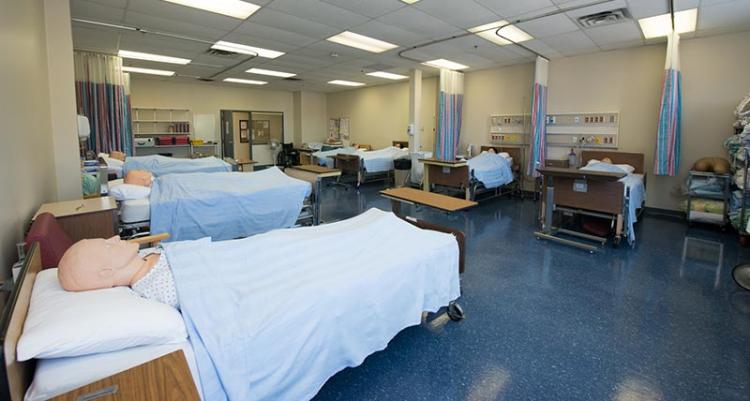Over a span of six weeks, nursing students at the University of New Brunswick's Moncton site completed their course requirements and successfully implemented community projects - entirely in a virtual setting.

Using Microsoft Teams and Zoom, students partnered with several community agencies across New Brunswick to provide educational resources and tools for clients who use their services. Agencies included Correctional Services of Canada Health, Provincial Corrections Health, Public Health, Fredericton Downtown Community Health Centre, Monoqonuwicik-Neoteetjg Mosigisig (Under One Sky) Friendship Centre & Head Start Program, Addictions and Community Mental Health Services Moncton, and Ensemble Moncton.
NURS 3068 Clinical Practicum: Community and Population Health Nursing is a clinical course requiring students to work with communities to implement a community development program in support of the needs of that community. With 10 groups of students and five instructors, not only did students learn about the community health necessities of different populations, they also developed leadership and project management skills that came from working together with community liaisons and clients to identify barriers and present solutions.
"Every clinical group has their own success story of how they connected with the community," says David Busolo, assistant professor in nursing at UNB's Moncton site.
Although this course was a little different this year, students rose to the occasion, presenting impactful community projects while meeting and exceeding course expectations.
Students Emily Glasgow, Kristy Walker and Katie Sturgeon worked within their clinical groups and all developed projects in partnership with correctional services.
"After meeting with the community liaisons and the individuals involved in the justice system, the students were empowered to want to help strengthen the resources to enhance programs," says Michelle Anglehart, clinical instructor.
Ms. Glasgow and Ms. Walker's clinical group project focused on immunization - identifying the barriers to immunization to justice-involved people, and providing solutions to the challenges faced. Their group provided educational materials to promote and advocate for immunization, focusing specifically on influenza but also touching on the future COVID-19 vaccine.
Ms. Sturgeon's clinical group was tasked with identifying barriers and presenting solutions to combat the barriers associated with hepatitis C in correctional facilities.
Both clinical groups assigned to correctional facilities worked in collaboration with the community liaisons and also had an opportunity to work directly with focus groups which included individuals who are involved with the justice system. A significant take away from the project experience was that the students saw clients take pride and ownership in the project, and in-turn talk positively among their peers about health.
"Working directly with clients and seeking their feedback gave them an opportunity to own the project, and ownership can bring advocacy," says Ms. Walker. "Peer influence can also have a positive effect in this situation."
"I found that the clients were actually happy to be included in the direction the project took. It made them feel like they mattered," says community liaison Jocelyne Frenette, RN, Southeast Regional Correctional Centre (Shediac) Lead Nurse. "I am hopeful that with the pamphlets, posters and other materials provided by the UNB students, we will see an increase in the number of clients who will participate in the flu vaccine this year."
Despite being done virtually, students were able to connect more frequently and meaningfully with community liaisons. Additionally, this alternative form of delivery enabled health partners from different geographic corners of the province to get involved - providing students with a more diverse and inclusive educational experience.
"As this course was delivered online, it was crucial to stay organized with peers and liaisons," says Ms. Glasgow. "This clinical opportunity enabled us to grow not only as student nurses but also as leaders, all while building confidence in the community setting."
"Doing the course virtually strengthened the outcomes of the project," says Ms. Sturgeon. "Taking clinical online also helped me build my confidence in speaking in front of others and communicating clearly."
"A critical component of nursing education as a practice profession is experiential learning, and while the pandemic has presented many challenges for educators, it is energizing to see the innovation that has come out of this crisis," says Renée Gordon, strategist, clinical programming and senior instructor. "For this course, students, community partners and faculty were able to collaboratively achieve and even surpass expected outcomes for this clinical experience. This speaks to the flexibility and solution-oriented nature of all those involved."













